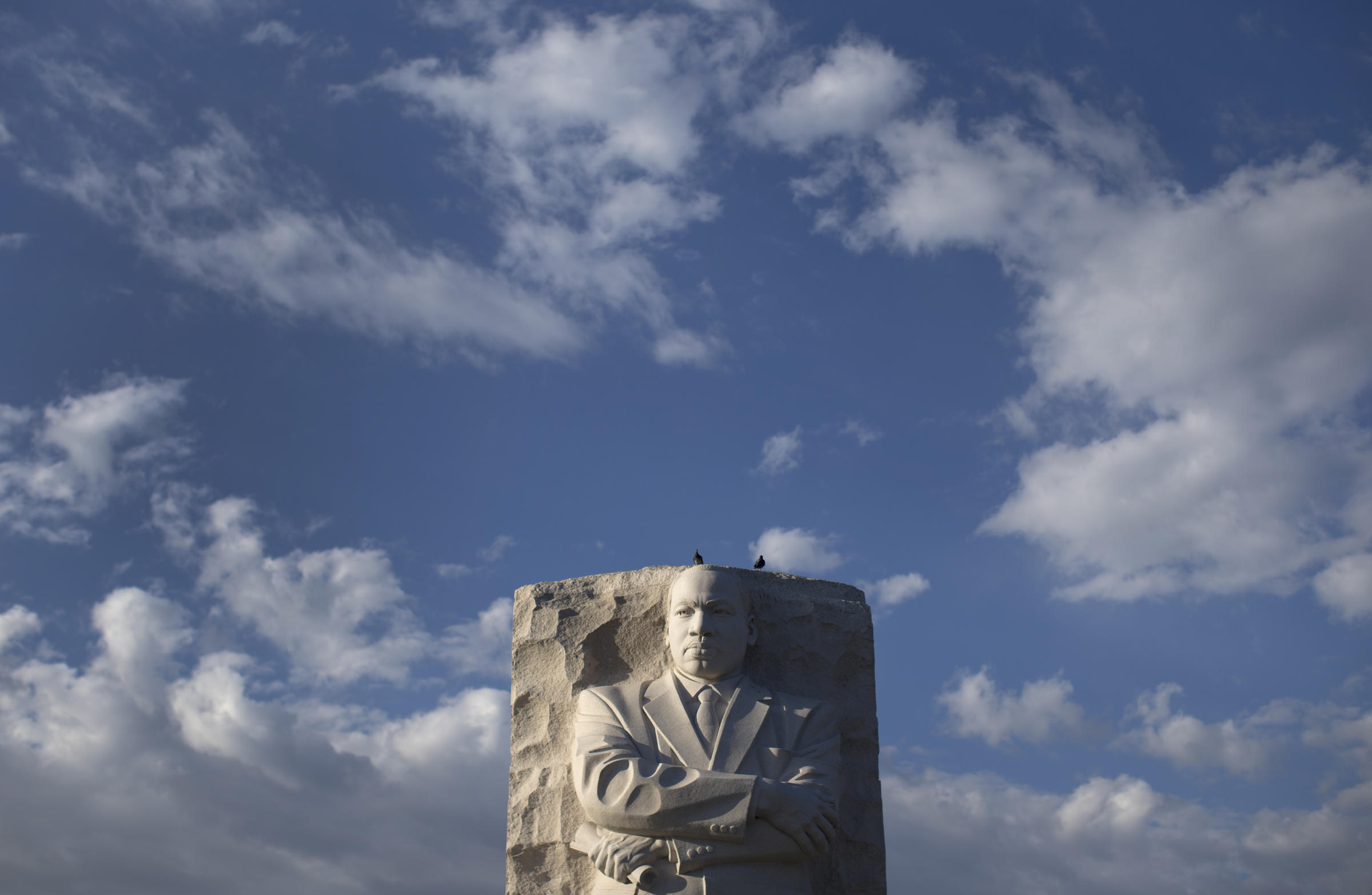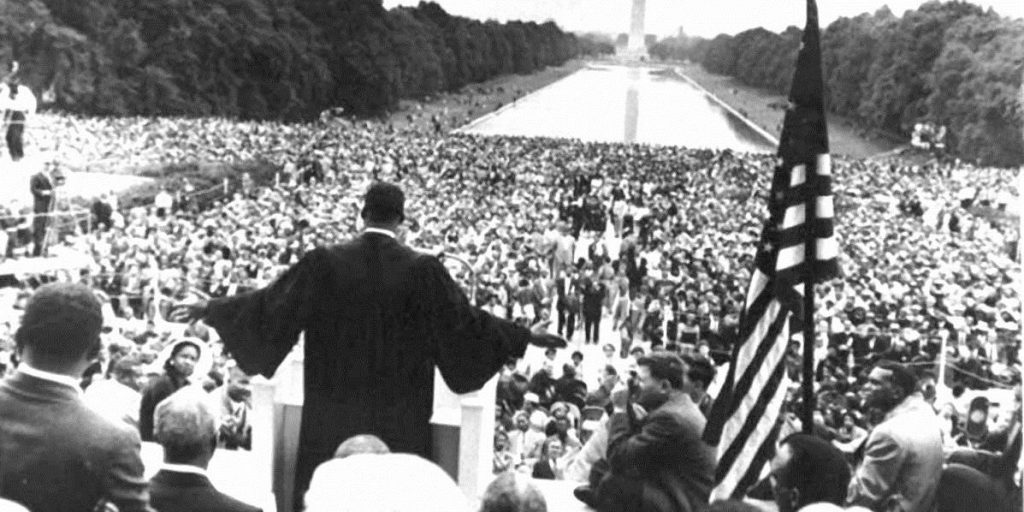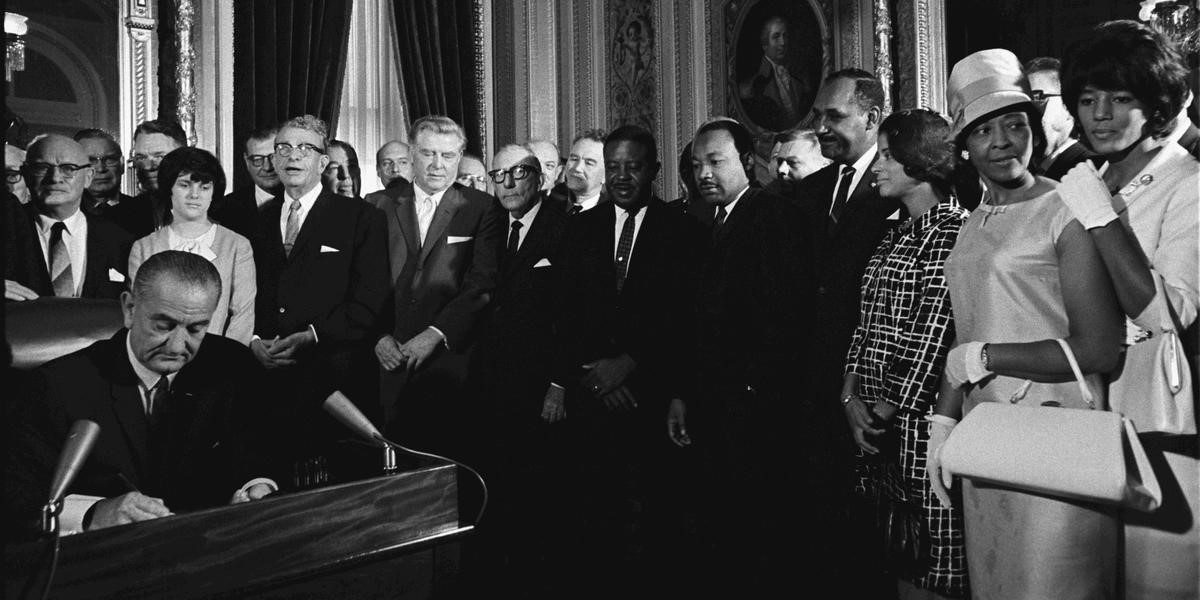8 Things You Might Not Have Known About MLK

Birds sit atop the Martin Luther King, Jr. Memorial on a fall afternoon in Washington, Monday, Nov. 3, 2014. (AP Photo/Carolyn Kaster)
By Beth Ward
There are some parts of Rev. Martin Luther King Jr.’s story that we know by heart. We know about the dream he had for the country, about the bridges he fought to cross, about the words he shared from his pulpits.
And we know how he left us — from the balcony of the Lorraine Hotel in Memphis, and far too soon.
But even 48 years after his death, these facts don’t tell us the whole story. There’s plenty more to learn about King’s life and legacy.
Here, eight lesser-known facts about one of the most well-known figures in American history.
Martin Luther Was Not His Given Name
Originally born Michael King, after an inspiring trip to Germany, King’s father adopted the name in honor of Protestant Reformation leader, Martin Luther. His son would gradually begin to follow suit, adopting the name Martin Luther King Jr.
He Received A C In Public Speaking At Seminary School
After graduating from Morehouse College in Atlanta in 1948, King went on to attend Crozer Theological Seminary in Chester, Pennsylvania. Despite being an above average student earning A’s and B’s in his other courses, he received a C in public speaking during his second term. He went on, however, to pass his comprehensive exam with honors, graduating as valedictorian of his class. He later earned his PhD in theology from Boston University.
The “I Have a Dream” Portion Wasn’t Included In The Original Draft Of King’s Speech

The original speech, given at the March on Washington for Jobs and Freedom, did not include the portion that began with King’s “I have a dream” line. That part was improvised at the last minute, added at the end after gospel singer Mahalia Jackson called to him from the crowd, “Tell them about your dream, Martin!” The canonized speech went on to become one of the most famous in United States History.
King Wasn’t The First Black Nobel Laureate
He was third after American political activist Ralph J. Bunche and South African politician Albert John Luthuli. Then Chairman of the Nobel Prize Committee, Gunnar Jahn, said King was awarded the prize for showing the world that “struggle can be waged without violence,” and for extending his message of brotherly love “to all men, to all nations and races.” King donated all of his $56,400 in prize money to the Civil Rights Movement, and during his acceptance speech said, “I believe that unarmed truth and unconditional love will have the final say in reality. Right temporarily defeated is stronger than evil triumphant.”
The March From Selma Was Actually Three Separate Events
In 1965, King and the Southern Christian Leadership Conference (SCLC), with the help of Reverend James Bevel and other local activist organizations like the Dallas County Voters League, attempted to organize a march from Selma to Montgomery, Alabama — both as a response to the shooting death of protester Jimmy Lee Jackson, and as part of ongoing efforts to urge Congress to pass the Voting Rights Act.
The first march, “Bloody Sunday,” took place on March 7 and was led by John Lewis and other members of the SCLC. Protesters were forced to stop marching due to police brutality and violence from local mobs. Activists, including King this time, attempted to march again March 9, but were stopped once more and turned around. The third march began on March 21. Five days later, under the protection of the U.S Army, the Alabama National Guard, FBI agents and Federal Marshals, protesters and activists made it the 51 miles to Montgomery.

On March 25, from the steps of the state capital, King delivered his “How Long, Not Long” speech, declaring that “the arc of the moral universe is long, but it bends toward justice.” A little over five months later, on August 6, President Johnson signed the Voting Rights Act into law.
King Was Arrested 30 Times, And Was Once Held At The Fulton County Jail
The arrests were for offenses ranging from civil disobedience to driving 30 miles per hour in a 25-mile-per-hour zone. On Oct. 19, 1960, King was arrested and taken to the Fulton County Jail for participating in sit-in at a lunch counter at Rich’s. One of those arrests, in Alabama, lead him to write “Letters from a Birmingham Jail.” in which he states, “injustice anywhere is a threat to justice everywhere.”
Barack Obama Was Sworn During His Second Inauguration Using King’s Bible

The Bible, one of two used during Obama’s swearing in, was King’s traveling Bible, used to help him prepare and gain inspiration for his sermons and speeches. The Bible was used in honor of the 50th anniversary of King’s “I Have a Dream” speech. The other Bible used during the ceremony belonged to Abraham Lincoln.
He Is The Only Non-President To Have A Federal Holiday Declared In His Honor
After a fight that lasted nearly 32 years, President Ronald Reagan signed the King holiday bill into law in 1983, declaring the third Monday in January a federal holiday. It wasn’t until 2000 that the holiday was formally adopted by all 50 states.





